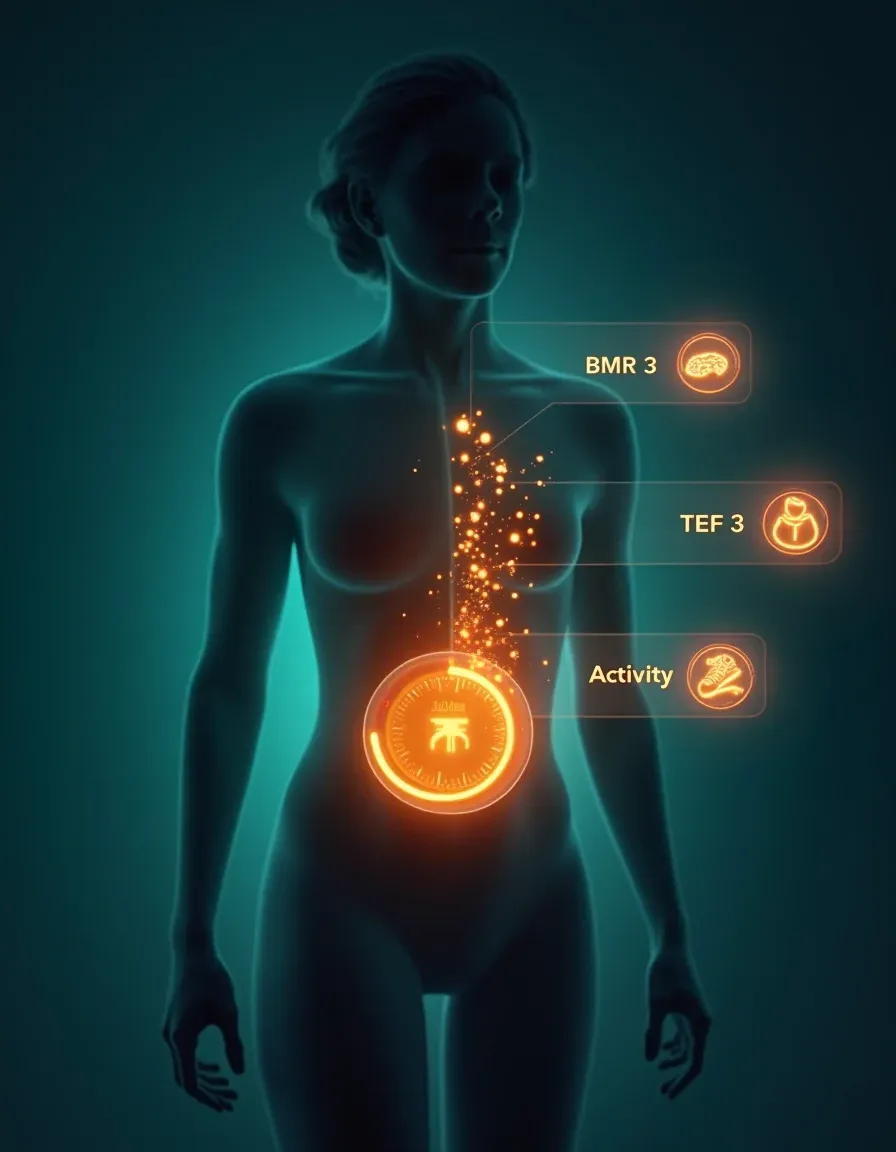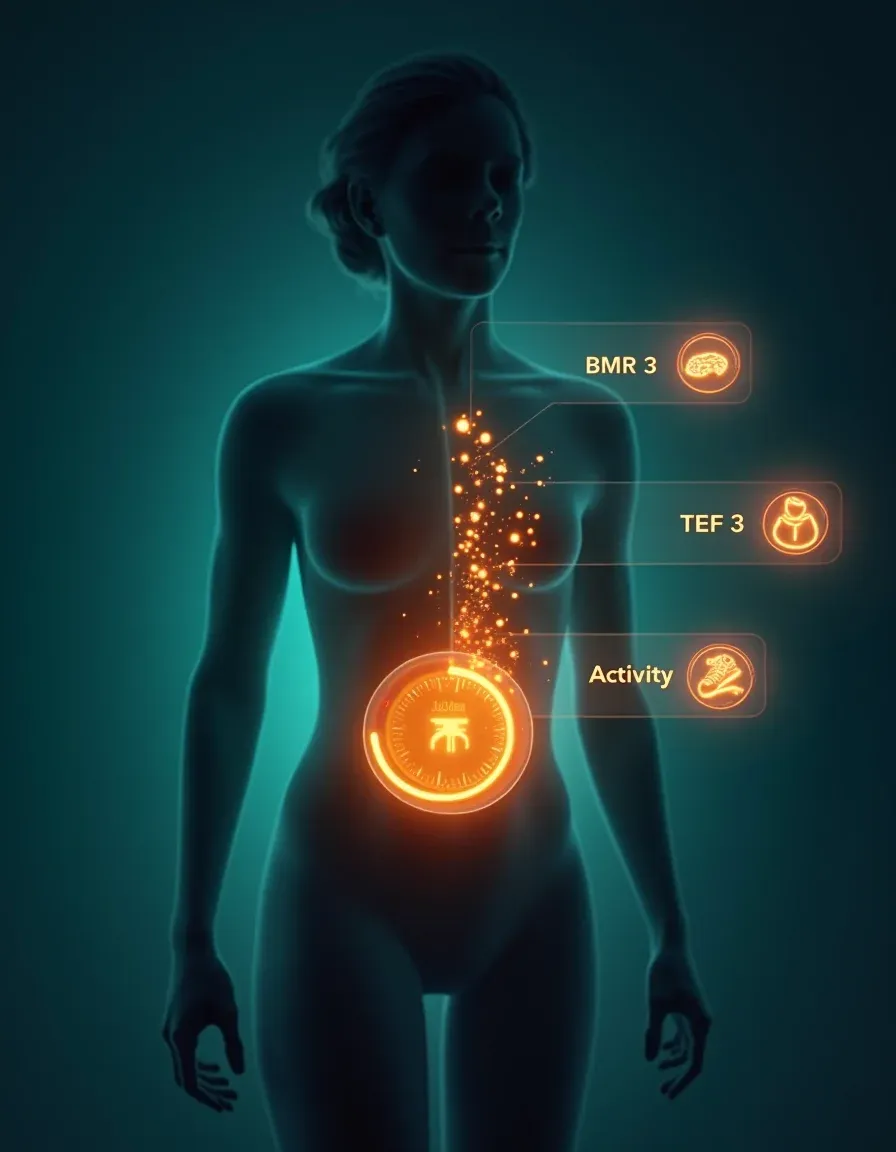Calorie Deficit: How Eating Less Makes You Lose Weight (No magic, just math)
Curious how eating less actually shrinks your body? This clear, science-backed guide explains calorie deficit mechanics, why bigger people burn more at rest, and simple, sustainable steps to lose weight safely.

The question
How does a calorie deficit actually make you lose weight? If you eat less than before but don’t exercise much, will you still drop pounds? And why do bigger people seem to burn more calories just by existing?
Short answer: your body needs energy to run itself. If you give it less energy (calories) than it needs, it taps stored energy — mostly fat — to make up the difference. That’s a calorie deficit.
What’s going on under the hood?
Your total daily calorie burn (often called TDEE) is roughly the sum of three parts:
- Basal metabolic rate (BMR) — the energy your body uses just to keep you alive (breathing, circulation, keeping warm, brain work). This is the biggest chunk — around 60–75% for many people. (See more: Basal metabolic rate on Wikipedia.)
- Thermic effect of food (TEF) — the calories burned digesting and processing what you eat (usually ~10% of intake).
- Activity — everything from walking and chores to workouts. This is the most variable part.
Because BMR is the biggest piece, your body burns a lot of calories just by existing. Bigger people (more body mass and more active cells) often have higher BMRs, so they burn more calories at rest than smaller people.
Why you lose weight in a deficit
If your intake < your total burn, your body needs extra fuel and pulls it from stored energy (fat and sometimes muscle). Do that consistently and weight falls. That’s it — energy in vs. energy out over time.
Common mix-ups
- Exercise helps, but it’s easy to eat back calories you thought you burned. A hard workout can be undone by a tempting snack.
- You don’t have to exercise to lose weight — reducing calories alone can work — but exercise helps preserve muscle, boost health, and makes weight loss easier to keep off.
- Extreme cuts aren’t smart. Very low calories can slow metabolism, harm health, and are hard to keep up.
Practical, friendly advice
- Estimate your TDEE with an app or calculator (apps like Lose It can help you log food and set goals).
- Aim for a moderate deficit — often 300–700 kcal/day. A 500 kcal/day deficit roughly equals ~1 lb (0.45 kg) lost per week, though individual results vary.
- Prioritize protein and whole foods to keep you full and protect muscle when losing weight.
- Include resistance training if you can — it helps preserve muscle and keeps your metabolism steadier.
- Sleep, stress, and medical conditions matter — if weight isn’t shifting despite a reasonable plan, see a healthcare pro.
One last friendly note
Weight change is simple in concept but personal in practice. Be patient, track what you can, make small, sustainable changes, and focus on habits you can keep long-term. Your body’s smart — give it steady signals and it’ll respond.





